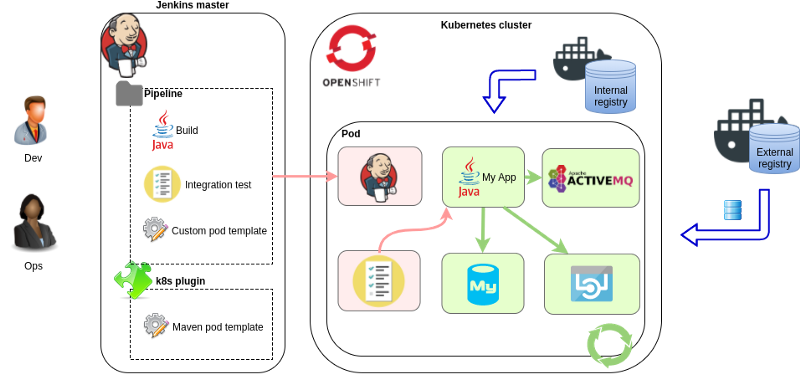

post the build & host itĪutomated my app builds/unit tests & saved a lot of time & worry, i’ve used this the most (7-8yrs) so I can talk about it. send me an email.Į.g: check out a fresh copy (so Larry didnt forget to include a file.). Point it to your source code, say “check on updates”, then “do this”… when youre done. Jenkins- a server to schedule & automate things. Underneath the curtains, gitlab uses containers to execute your pipeline in a cloud service, but this will only matter when you're trying to optimize your build (taking advantage of some cached/prebuilt container with buildtools for c++ compiling)įrom an simple application guy, maybe my base level understanding will help.
#How jenkins is linked to docker and kubernetes how to#
You should understand how to use gitlab-ci.yml to build your c++ application. Kubernetes is the tool enabling such powerful setup. Given that you're using containers in production, you might be interested in scale horizontally (adding more virtual machine running your app in a cloud service). It has almost zero overhead and it's a perfect alternative to VM for testing and deployment. A container isolates an application into a virtual environment containing everything the app should be able to see/aknowledge.

A container may seem similar to a VM, but it doesn't virtualize anything. But let's be honest, I don't know of recent projects adopting Jenkins when GitHub and gitlab already provided built-in and free hosting solutions for their CI/CD technology (for open source GitHub repository there's also Travis CI - another free alternative)ĭocker provides an sane CLI interface for a Linux kernel feature: containerization. Jenkins is older, powerful and has an web UI for configuration (no. Jenkins is an alternative to gitlab CI/CD.


 0 kommentar(er)
0 kommentar(er)
